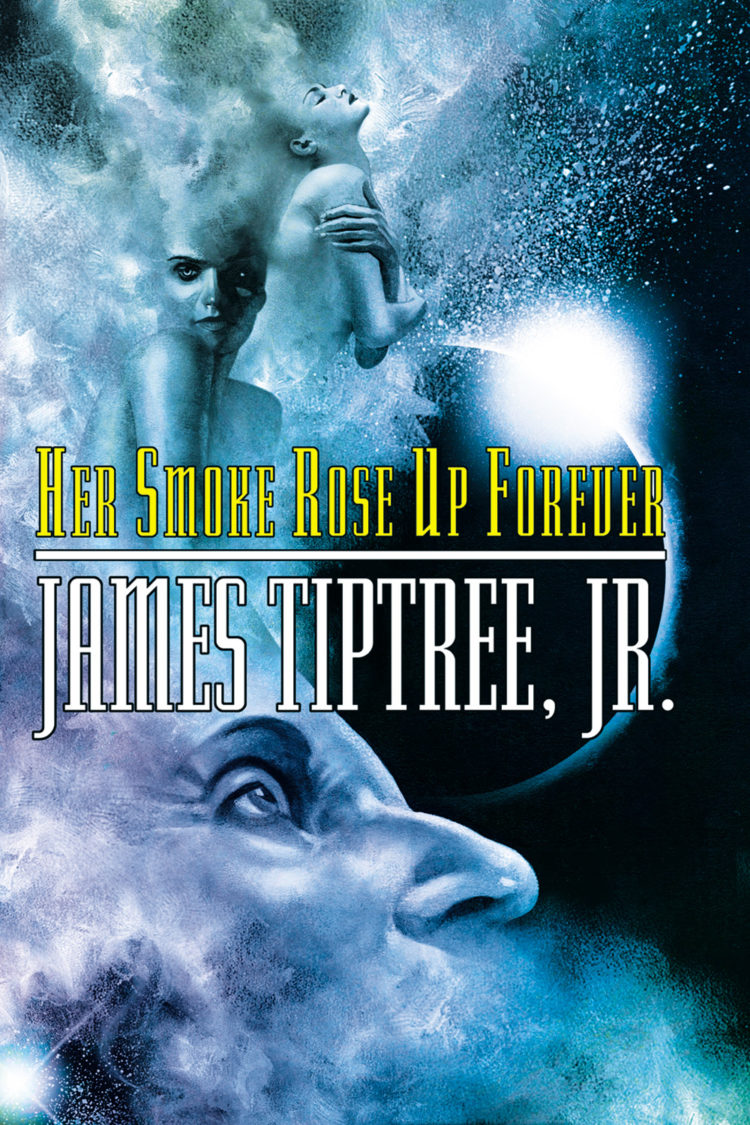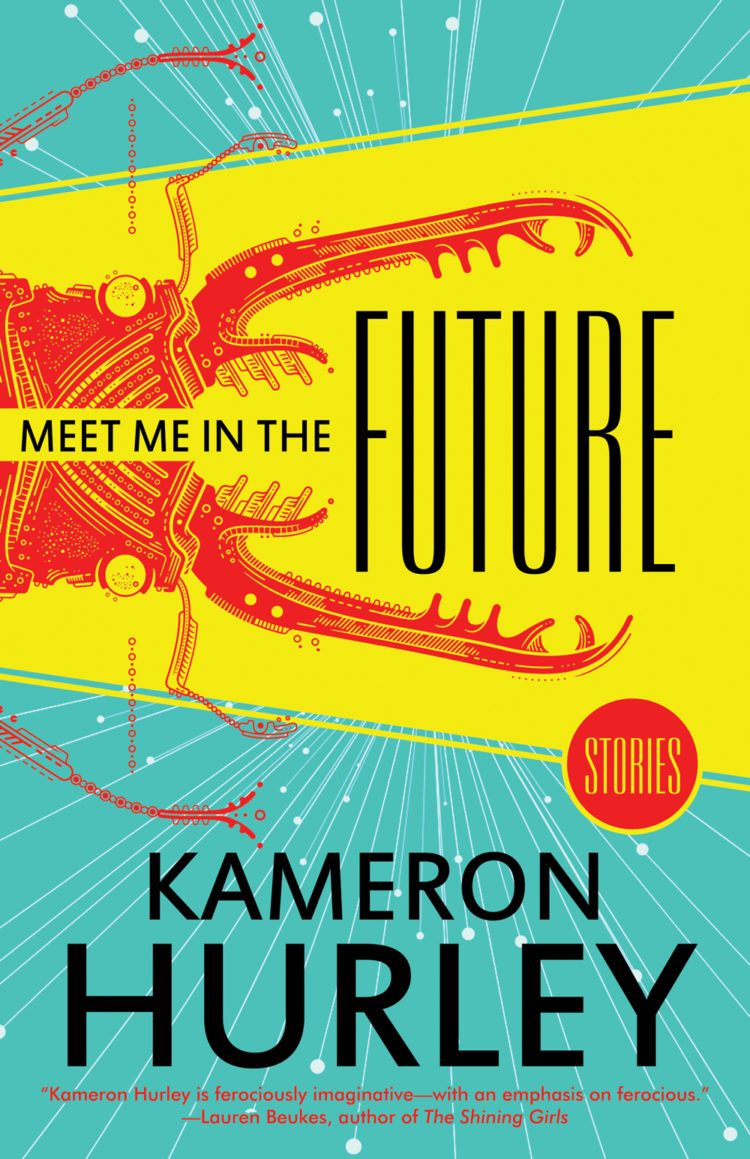James Tiptree, Jr.’s HER SMOKE ROSE UP FOREVER and Kameron Hurley’s MEET ME IN THE FUTURE are recommended pieces of Feminist Future

As part of the FEMINISTFURTURE exhibit, BOSTON CENTER FOR THE ARTS recommends both James Tiptree, Jr.’s HER SMOKE ROSE UP FOREVER and Kameron Hurley’s MEET ME IN THE FUTURE.
- Margaret Atwood, Oryx and Crake (first book in the MaddAddam Trilogy)
- Freedom Baird, Shoreline Recall
- Lois McMaster Bujold, Diplomatic Immunity (part of the Vorkosigan Saga)
- Octavia Butler, Parable of the Talents
- Angela Carter, Heroes and Villains
- Louise Erdrich, The Future Home of the Living God
- Kameron Hurley, Meet me in the Future
- N.K. Jemisin, How Long ‘til Black Future Month?
- Madeleine L’Engle, A Wrinkle in Time
- Ursula LeGuin, The Dispossessed
- Ursula LeGuin, The Lathe of Heaven
- Ursula LeGuin, The Left Hand of Darkness
- Karen Lord, The Best of All Possible Worlds
- T.A. McLaughlin, The Love of the Tayamni
- Nnedi Okorafor, Who Fears Death
- Joanna Russ, The Female Man
- Emily St. John Mandel, Station Eleven
- Alice B. Sheldon, (aka James Tiptree, Jr. ), Her Smoke Rose Up Forever
- Malka Older, Informocracy
- Lisa Yaszek, Ed., The Future is Female! 25 Classic Sci-Fiction Stories by Women

Design by Elizabeth Story
The Estonian LOTERII reviews Hurley’s story “The Women of Our Occupation.”
On the one hand, of course, as a reader, you sympathize with the sufferings of the family (because they are not the ones who can face it), but on the other hand, what was this pre-occupation society really like? Hurley does not talk about it in wood and red, so-called didactic equality, but somehow … with an interesting twist. Or, well, what an “interesting cue” could of course be to describe the suffering of the occupied community; but at the same time, this gender reassignment is an interesting ploy: Why should women in the military behave differently?
Translation from Estonian, courtesy of Google
Arley Sorg in CLARKESWORLD (March 2020) interviews Hurley.
Your debut novel, God’s War, originally purchased in 2008, was published in 2011, beginning the Bel Dame Apocrypha series. At least seven novels and a collection later, how has your writing changed since that first book?
I’ve learned a lot more about plot and structure, which I have deliberately focused on since completing that first trilogy. I knew early on—from back when I went to the Clarion West writing workshop twenty years ago—that I had a strong affinity for character and worldbuilding, but plot and structure didn’t come nearly as naturally. I partnered with an agent, Hannah Bowman, who is very good at story structure and actively involved in her clients’ projects from initial pitch all the way through proofs. I really wanted a strategic business partner, and she’s been invaluable in helping me navigate my career after that first series.
I am more deliberate when approaching projects now. My goal is to do most of the planning up front so I don’t have to spend so much time revising. Sometimes that works—as with The Light Brigade—and sometimes it doesn’t, as with the last book in my fantasy trilogy, The Broken Heavens, which I had to rewrite three times.
That said, plotting and structuring short fiction has become much easier. I’m writing a short story every month for subscribers via my Patreon, and on that more compressed structural scale, I feel I’ve really leveled up. In part this is because with short fiction you get experience writing a full beginning/middle/end every time. With novels, the process of doing that is stretched out over a much longer period of time, which means you get less practice in completing that beginning/middle/end cycle. It takes longer to level up.
